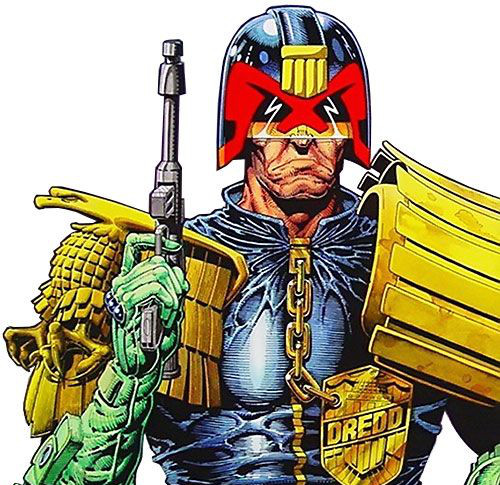
Judge Dredd, created by writer John Wagner and artist Carlos Ezquerra, first appeared in 1977 and is as mainstream in the UK as Marvel and DC are considered to be in the US. Until recently, Kumar had read very little of it, but after reading a sizable chunk of the series, including such classic storylines as The Day the Law Died and Apocalypse War, he talks in this episode with longtime Dredd reader Matt E (who last appeared on this podcast way back in 2015!) and compares notes on the comic’s astronomical body count, whether Dredd is a hero or a villain, and more.
Brought to you by:
Podcast: Play in new window | Download

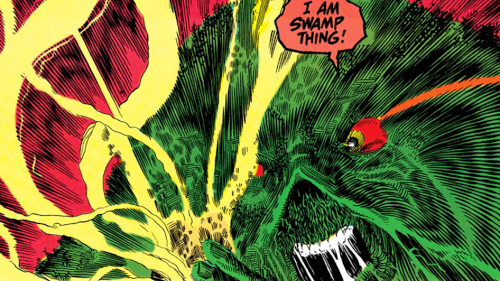
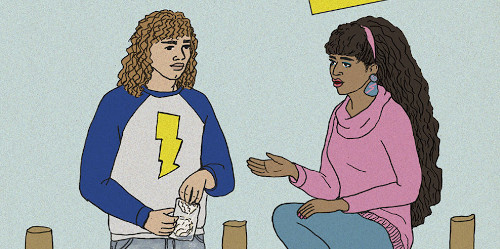 There were several landmark comics titles in the 1980s (do we really need to name them?), but unfortunately they tend to overshadow much of the other interesting work of the decade. Brannon Costello and Brian Cremins have edited a collection of essays on some of these overlooked works, called The Other 1980s. This time, Kumar and Emmet discuss some of the book’s essays, including chapters on Neil the Horse, Doug Moench, Trina Robbins, Elfquest, and more.
There were several landmark comics titles in the 1980s (do we really need to name them?), but unfortunately they tend to overshadow much of the other interesting work of the decade. Brannon Costello and Brian Cremins have edited a collection of essays on some of these overlooked works, called The Other 1980s. This time, Kumar and Emmet discuss some of the book’s essays, including chapters on Neil the Horse, Doug Moench, Trina Robbins, Elfquest, and more.
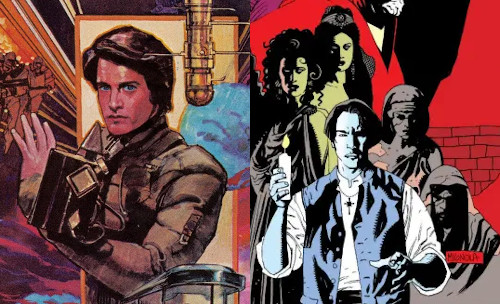


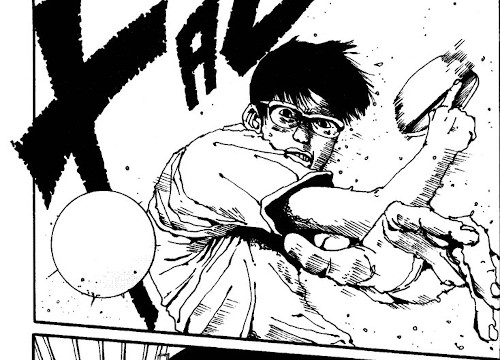 Prolific manga creator Taiyo Matsumoto’s Ping Pong is, nominally, a sports manga, but it doesn’t stick to the tropes. It presents table tennis matches that take place in a small town, not at a major tournament in Tokyo; often it doesn’t even show the end of a match! In some ways it functions as a parody of the genre. Kumar and Dana discuss this fun and unpredictable manga.
Prolific manga creator Taiyo Matsumoto’s Ping Pong is, nominally, a sports manga, but it doesn’t stick to the tropes. It presents table tennis matches that take place in a small town, not at a major tournament in Tokyo; often it doesn’t even show the end of a match! In some ways it functions as a parody of the genre. Kumar and Dana discuss this fun and unpredictable manga.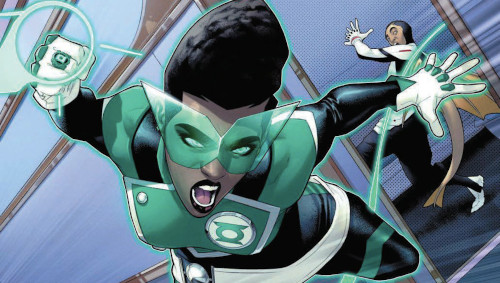
 A story originally conceived as an Incredible Hulk tale in — really — the 1980s, Barry Windsor-Smith‘s Monsters has finally seen the light of day. How is it? Kumar and Dana find it a joy to look at, and containing a number of astonishing scenes and mind-blowing plot points, but also to have some serious drawbacks. Does the good outweigh the bad? Here’s their review.
A story originally conceived as an Incredible Hulk tale in — really — the 1980s, Barry Windsor-Smith‘s Monsters has finally seen the light of day. How is it? Kumar and Dana find it a joy to look at, and containing a number of astonishing scenes and mind-blowing plot points, but also to have some serious drawbacks. Does the good outweigh the bad? Here’s their review.